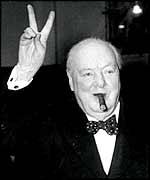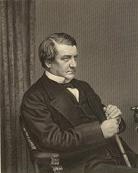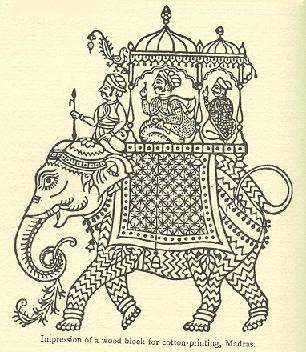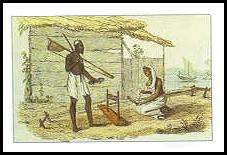|
Page < 1 2 3 4 5 6 7 8 9 10 11 12 13 14 15 16 17 18 19 20 21 22 23 24 >
India
in Bondage
The
Bengal Famine 1943 - 44: The final judgment on British Rule in
India
 Author
John
Newsinger is
Senior Lecturer: History. School of Historical and Cultural Studies at the Bath
Spa University, UK. He
has written
in his book,
The
Blood Never Dried: A People's History of the
British Empire: Author
John
Newsinger is
Senior Lecturer: History. School of Historical and Cultural Studies at the Bath
Spa University, UK. He
has written
in his book,
The
Blood Never Dried: A People's History of the
British Empire:
"India
still had to face the
greatest disaster to befall the country in the 20th century: the
Bengal Famine of 1943-44. This was the product of food shortages brought about
by the war. Imports of food grains from Burma
were cut off by the Japanese occupation and the system of distribution for
domestic supplies broke down. For the peasantry, a large number of whom lived at
or below subsistence level at the best of times, the consequences were
catastrophic. The poor could not feed themselves and began to starve. Tens of
thousands trekked to
Calcutta
, only to die on the city streets. The British administration in the words of
one historian responded with “a callous disregard of its duties in handling
the famine.” Not only were no steps taken to provide against famine, but
India
continued exporting food grains to
Iran
at the rate of 3,000 tons a month throughout 1942. The result was a terrible
death toll from starvation and disease in 1943-44 that totaled more than 3.5
million men and women.
This was, as Jawaharlal Nehru put it, “the
final judgment on British rule in India.”
When Lord
Wavell succeeded Lord Linlithgow
as Viceroy, he was appalled at how little had been done to provide famine
relief. Part of the problem was Churchill, “who seemed to regard famine relief
as ‘appeasement’ of the Congress”. On one occasion when presented with
details of the crisis in
Bengal
, Churchill commented, “on Indians breeding like rabbits”. As far as he was
concerned “the starvation of anyhow underfed Bengalis
is less serious than sturdy Greeks”, a sentiment with which Amery
concurred. Wavell himself informed
London
that the famine “was one of the greatest disasters that has befallen any
people under British rule”. The government was unmoved. Wavell said when
Holland
needs food, “ships will of course be available,
quite a different answer to the one we get whenever we ask for ships to bring
food to India.”
Winston
Churchill’s (1874 - 1965) attitude was quite explicitly
racist.
He told
Amery: “I hate Indians. They are a beastly people
with a beastly religion.” On another occasion, he insisted that
they were “the beastliest people in the world next to the Germans”.
Leopold
Charles Maurice Stennett Amery (1873-1955) born in Gorakhpur, India
of an English father and a Hungarian Jewish mother, he was a British
Conservative Party politician and journalist.



Leopold
Charles Maurice Stennett Amery, Sir Winston Churchill and Bert
"Bomber" Harris (1892
- 1984)
“the
Hindus were a foul race…and he wished Bert Harris
(Air Marshall Bert "Bomber" Harris could send some of his
surplus bombers to destroy them.”
Churchill's
attitude to Indians was quite explicitly
racist.
"By
the end of the War the Indian army was 2.5 million strong and during the
conflict the Indian armed forces suffered over 30,000 men killed fighting for
the
British Empire
."
Today
their contribution is merely a footnote in world history.
-
N B Bonarjee, author of the book, Under Two Masters,
p. 294.
***
Amery
was bemused by Churchill's “curious hatred of
India
” and concluded that he was “really not quite normal on the
subject”. Indeed Amery was not sure “whether on this subject of
India
he is really quite sane.” Provoked beyond endurance by Churchill’s bigotry,
Amery, on one occasion, said: “I didn’t see much
difference between his outlook and Hitler’s”. Amery was not a
liberal or progressive, but a hardnosed right wing imperialist. And it was not
just to Amery that Churchill made his feelings clear.
In
February 1945 Churchill told his private secretary, Sir
John Colville (1915-1987) that:
“the
Hindus were a foul race…and he wished Bert Harris
(Air
Marshall Bert "Bomber" Harris (1892 - 1984)
could send some of his
surplus bombers to destroy them.”
Somewhat
predictably, Churchill’s part in the failure of famine relief in
Bengal
, one of the great crimes of the war, is not something that his innumerable
biographers have been concerned to explore. This is really quite disgraceful. To
quote N B Bonarjee, author of Under
Two Masters, and the district magistrate who had loyally helped suppress the
Quit India revolt.
In his memoirs he writes bitterly of how the Viceroy
broadcast of 13 May 1945 Churchill had thanked
Australia,
Canada
and
New Zealand
for their contribution to the war effort, but could not bring himself to
mention India
“although she provided more in men and material than the rest put
together.”
(source:
The
Blood Never Dried: A People's History of the
British Empire - By John Newsinger p.
157 - 159).



Viceroy
Mayo, Benjamin Disraeli and Winston Churchill.
At
the same time that Winston Churchill (President
George W Bush' hero) was waging a valiant struggle against the
Nazis and Japanese, he complained to Leo Amery, Secretary of State for India:
‘I
hate Indians. They are a beastly people with a beastly religion.’
Refer to
Churchill’s Secret War: The British Empire and the Ravaging of India during
World War II - By
Madhusree Mukerjee
and
The Flaws in the Jewel: Challenging the Myths of British India - By Roderick
Matthews
(source:
The
Blood Never Dried: A People's History of the
British Empire
– By John Newsinger p. 157 - 159).
***
Viceroy
Richard Southwell Bourke Mayo,
6th earl of Mayo (1822 – 1872) also called Lord Naas
Irish politician and civil servant best known for his service as viceroy of
India, where he improved relations with Afghanistan wrote,
'We are determined as long as
sun shines in heaven to hold India. Our national character, our commerce, demand
it; and we have, one way or another, £250 millions of English capital fixed
in the country'.
Benjamin
Disraeli (1840 - 1881) famously
dubbed India a 'jewel in the crown of England'.
In the 1880s India took nearly one fifth of British
exports and overseas investment. In the mid-19th century all tea had come from
China. By 1900 most of it came from India.
Winston
Churchill (1874 - 1965) once remarked, The possession of India, made
all the difference between Britain being a first and a third rate world power.
(source:
India
- Imperialism, Partition and Resistance).
***
American
Rev.
Jabez T. Sunderland
(1842-1936) former President of the India
Information Bureau of America and Editor of Young India (New York). Author of India,
America and World Brotherhood, and Causes
of Famine in India. He has written glowingly about India's culture:
 "When
the British first appeared on the scene, India was one of the richest countries
of the world; indeed, it was her great riches that attracted the British to her
shores. For 2,500 years before the British came on the scene and robbed her of
her freedom, India was self-ruling and one of the most influential and
illustrious nations of the world." "When
the British first appeared on the scene, India was one of the richest countries
of the world; indeed, it was her great riches that attracted the British to her
shores. For 2,500 years before the British came on the scene and robbed her of
her freedom, India was self-ruling and one of the most influential and
illustrious nations of the world."
“This wealth,” says was created by the Hindus’
vast and varied industries. Nearly every kind of manufacture or product known to
the civilized world – nearly every kind of creation of Man’s brain and hand,
existing anywhere, and prized either for its utility or beauty – had long,
long been produced in India. India was a far greater industrial and
manufacturing nation than any in Europe or than any other in Asia. Her textile
goods – the fine products of her loom, in cotton, wool, linen, and silk –
were famous over the civilized world; so were her exquisite jewelry and her
precious stones, cut in every lovely form; so were her pottery, porcelains,
ceramics of every kind, quality, color and beautiful shape; so were her fine
works in metal – iron, steel, silver and gold. She had great architecture –
equal in beauty to any in the world. She had great engineering works. She had
great merchants, great business men, great bankers and financiers. Not only was
she the greatest ship-building nation, but she had great commerce and trade by
land and sea which extended to all known civilized countries. Such was the India
which the British found when they came.
Rev.
C. F. Andrews, missionary, professor and publicist, says:
"Our
whole British talk about being ' trustees of India' and coming out to ' serve'
her, about bearing the 'white man's burden' about ruling India 'for her good,'
and all the rest, is the biggest hypocrisy on God's earth."
Many
will remember the poem written by Bertrand Shadwell:
"If
you see an island shore
Which has not been grabbed before
Lying in the track of trade, as islands should
With the simple native quite
Unprepared to make a fight
Oh, you just drop in and take it for his good
Not for love of money, be it understood
But you row yourself to the land,
With a Bible in your hand,
And you pray for him and rob him, for his good:
If he hollers, then you shoot him for his good.
Or this lesson I can shape
To campaigning at the Cape,
He would welcome British rule
If he weren't a blooming fool;
Thus, you see it's only for his good,
So they're burning houses for his good
Making helpless women homeless for their good,
Leaving little children orphans for their good
In India there are bloody sights
Blotting out the Hindu's rights
Where we've slaughtered many millions for their good
And, with bullet and with brand,
Desolated all the land
But you know we did it for their good,
Yes, and still more far away
Down in China, let us say
Where the "Christian" robs the "heathen" for his good,
You may burn and you may shoot
You may fill your sack with loot
But be sure you do it for his good."
(source:
India
in Bondage: Her Right to Freedom - By Rev. Jabez T. Sunderland p.1-61).
This book, published in India and promptly suppressed by the British
Government,
is the history of the British Rule in India from the Indian side. The
central theme of the book was that the British rule in India was unjust, that
the Indians were abundantly competent to rule themselves and that America should
support the cause of Indian nationalism. The book appeared to be so seditious to
the British authorities in India that it was not only proscribed, its publisher
was arrested and proceeded against under the Indian Penal Code).
It was this wealth that the East India Company proposed to
appropriate. Already in 1686 its Directors declared their intention to “establish
…a large, well-grounded, sure English dominion in India for all time to
come.” The company rented from the Hindu authorities trading posts
at Madras, Calcutta and Bombay, and fortified them, without
permission of the authorities, with troops and canon.
Robert Clive said: “When
I think, of the marvelous riches of that country, and the comparatively small
part which I took away, I am astonished at my own moderation.” Such were the
morals of the men who proposed to bring civilization to India."
 His successors in the management of the Company now began a
century of unmitigated rape on the resources of India. They profiteered without
hindrance: goods which they sold in England for $10,000,000 they bought for
$2,000,000 in India. The forged documents as circumstances required, and hanged
Hindus for forging documents. His successors in the management of the Company now began a
century of unmitigated rape on the resources of India. They profiteered without
hindrance: goods which they sold in England for $10,000,000 they bought for
$2,000,000 in India. The forged documents as circumstances required, and hanged
Hindus for forging documents.
“Every effort, lawful and unlawful,” says a Bombay
Administration report, written by Englishmen, “was made to get the utmost out
of the wretched peasantry, who were subjected to torture, in some instances
cruel and revolting beyond all description, if they would not or could not yield
what was demanded.”
“Everything and everybody was on sale” says the Oxford
History of India. “Under their old masters they (Indians) had at least one
resource: when the evil became insupportable, the people rose and pulled down
the government. But the English Government was not to be shaken off. That
Government, oppressive as the most oppressive form of barbarian despotism, was
strong with all the strength of civilization.
By 1858 the crimes of the Company so smelled to heaven that
the British Government took over the captured and plundered territories as a
colony of the Crown; a little island took over half a continent. All the debts
on the Company’s books, together with the accrued interest on these debts,
were added to the public obligations of India, to be redeemed out of the taxes
put upon the Hindu people. Exploitation was dressed now
in all the forms of Law – ie. The rules laid down by the victor for the
vanquished. Hypocrisy was added to brutality, while the robbery went on.
John Morley estimated that during the nineteenth century
alone England carried on one hundred and eleven wars in India, using for the
most part Indian troops; million of Hindus shed their blood that India might be
slave. The cost of these wars for the conquest of India was met to the last
penny out of Indian taxes; the English congratulated themselves on conquering
India without spending a cent. Certainly it was a remarkable, if not a
magnanimous, achievement, to steal in forty years a quarter of million square
miles, and make the victims pay every penny of the expense. When at last in 1857
the exhausted Hindus resisted, they were suppressed with “medieval
ferocity”; a favorite way of dealing with captured rebels was to
blow them to bits from the mouth of canons. “We took,” said the London
Spectator, “at least 100,000 Indian lives in the mutiny.” This
is what the English call the Sepoy Mutiny, and what the Hindus call the War of
Independence. There is much in a name.
James
Mill, historian of India, wrote: "Under their dependence upon
the British Government...the people of Oudh and Karnatic, two of the
noblest provinces of India, were, by misgovernment, plunged into a state
of wretchedness with which ..hardly any part of the earth has anything to
compare."
F. J.
Shore, British
administrator in Bengal, testified as follows to the House of Commons in 1857:
“The fundamental principle of
the English has been to make the whole Indian nation subservient, in every
possible way, to the interests and benefits of themselves. They have been taxed
to the utmost limit; every successive province, as it has fallen into our
possession, has been made a field for higher exaction; and it has always been
our boast how greatly we have raised the revenue above that which the native
rulers were able to extort. The Indians have been excluded from every honor,
dignity or office which the lowest Englishman could be prevailed upon to
accept.”
In the midst of heart breaking poverty engendered partly by
heavy taxation, the Government treats itself, at staggering costs, to gigantic
official buildings at Delhi, needlessly alien in style to the architecture of
India; for seven months of every year it transfers the Capital, with all its
machinery and personnel, to vacation resorts in the mountains, at an expense of
millions of dollars; and from time to time it holds gorgeous Durbars, to impress
the people who provide tens of millions for the ceremony. It pays to be free.
The result is that the national debt of India which was
$35,000,000 in 1792 rose to $3,500,000,000 in 1929.
The actual policy of the British in India has been one of
political exclusion and social scorn. Every year the Indian colleges graduates
12,000 students; every year hundreds of Hindu graduate from universities in
Europe or America, and return to their native land. But only the lowest places
in the civil service are open to them.
Liberals like Elphinstone, and Munro, protested in vain
against this refusal of function to the educated intelligence of India, this “decapitation
of an entire people,” as Lajpat Rai called it. It is the commonest
thing,” says an American missionary, “to see Indian scholars and officials,
of confessedly high ability, of very fine training, and of long experience,
serving under young Englishmen who in England would not be thought fit to fill a
government or a business position above the second or third class. “Eminent
Hindu physicians and surgeons,” says Ramachandra Chaterjee, “are compelled
to spend the best years of their lives in subordinate positions as
‘assistant’ surgeons, while raw and callow youths lord it over them and draw
four to five times their pay.”
The English in India act as if they felt that their superior
position can be best maintained by asserting it at every step, by avoiding
participation in the life of the people, by setting up against them every
aristocratic social distinction, by treating them in every way as an inferior
race.
 Sunderland
reports that the British treat the Hindus as strangers and foreigners in India,
in a manner “quite as unsympathetic, harsh and abusive as was ever seen among
the Georgia and Louisiana planters in the old days of American slavery; and he
tells of several cases in which British soldiers
forcibly ejected from railway compartments educated Brahmins and courtly rajahs
who had tickets for this space. Sunderland
reports that the British treat the Hindus as strangers and foreigners in India,
in a manner “quite as unsympathetic, harsh and abusive as was ever seen among
the Georgia and Louisiana planters in the old days of American slavery; and he
tells of several cases in which British soldiers
forcibly ejected from railway compartments educated Brahmins and courtly rajahs
who had tickets for this space.
Savel Zimand author of Living
India, corroborates him: “Many of those distinctions drawn
against Indians are like those made against the Negroes in our south – minus
lynching. I could fill volumes with such instances.”
The result is a pitiful crushing of
the Hindu spirit, a stifling of its pride and growth, a stunting of genius that
once flourished in every city of the land. “Subjection to a foreign
yoke ,” says Professor Ross, “is one of the most potent cause of the decay
of nations.”
“The foreign system under which India is governed today,”
says Gandhi, “has reduced India to pauperism and emasculation. We have lost
self-confidence.”
Such
was the method of British acquisition of India…..and with all its modest
improvements, is destroying Hindu civilization and Hindu people.
(source:
The
Case for India - By Will Durant Simon and Schuster,
New York. 1930 p. This book was
banned by the British Government. Durant held the view that no part of the world suffered so much poverty and
oppression as India did and that this was largely due to British imperialism).
During
1903-5 in the wake of the partition of Bengal, William
Jennings Bryan, one of the topmost figures on the American political
scene and twice the Presidential candidate for the Democratic Party, visited
India and obtained first hand knowledge of the '"jewel" of the British
empire. The somber verdict was:
"Let
no one cite India as an argument in defense of colonialism. On the Ganges and
the Indus the Briton, in spite of his many notable qualities and his large
contribution to the world's advancement, has demonstrated, as many have before,
man's inability to exercise, with wisdom and justice, irresponsible power over
the helpless people. He has conferred some benefits upon India, but he has
extorted a tremendous price for them. While he has boasted of bringing peace to
the living, he has led millions to the peace of the
grave; while he has dwelt upon order...he has impoverished the
country by legalized pillage."
(source:
Katherine Mayo and India
- By Manorangan Jha People's Publishing House New Delhi 1971.p.2).
The Triumph
of Death

Economic
exploitation: A 19th century lithograph shows the impoverishment of cotton
ginners as cheap English mill-made cloth flooded the Indian market.
***
The emaciation of the Hindus
sickens the traveler; closed fingers can be run up around their bare legs from
the ankles to the knees. In the cities 34 % of them are absent from work, on any
day, from illness to injury. They are too poor to afford foods rich in mineral
salts; they are too poor to buy fresh vegetables, much less to buy meat. The
water-supply, which is usually the first obligation of a government, is in
primitive condition, after a century or more of British rule; dysentery and
malaria have been eliminated from Panama and Cuba, but they flourish in British
India. Once the Hindu was known to be the among the cleanest of the clean;
and
even today he bathes every morning, and washes every morning the simple garment
that he wears; but the increase of poverty has made social sanitation
impossible. Until 1918 the total expenditure on public health, of both the
central and provincial governments combined, was only $5,000,000 a year, for
240,000,000 people - an appropriation of two cents per capita.
Sir William
Hunter, estimated
that 40,000,000 of the people of India were seldom or never able to satisfy
their hunger. In 1901, 272,000 died of plague introduced from abroad, in 1902,
500,000 died of plague; in 1903, 800,000; in 1904, 1,000,000. We can now
understand why there are famines in India. Their cause, in plain terms, is not
the absence of food, but the inability of the people to pay for it. It was hoped
the railways would solve the problem...the fact that the worst famines have come
since the building of the railways...behind all these, as the fundamental source
of the terrible famines in India, lies such merciless
exploitation, such
unbalanced exploitation of goods, and such brutal collection of high taxes in
the very midst of famine....
(source:
The
Case for India - By Will Durant Simon and Schuster,
New York. 1930 p.50-53). Refer to Jesus
Christ: Artifice for Aggression - By Sita Ram Goel
Christian rule in India was perhaps the most
brutal and inhuman ever, possibly even more so than the most tyrannical Muslim
kingdoms.
Do you know that the rations approved by one Sir
Richard Temple for those undergoing hard labour during an 1890s famine was less
than the starvation diet given to Jewish prisoners at Buchenwald? (In passing,
Temple was also infamous for his Christian evangelism activities.) Yes, the
Buchenwald ration for the toiling masses.
Here is a damning table from Late Victorian
Holocausts (Mike Davis, Verso, pp 33). Look at the state-sanctioned ration
for the famine-ridden Madras Presidency in 1877, under the leadership of the
aforementioned Temple. Less than half the approved caloric intake for a modern
Indian. Less than the caloric intake at the most notorious concentration camp
run by the Nazis.
| |
Caloric
Value |
Activity
Level |
| Basal metabolism |
1,500 |
No activity |
| Ration in Madras, 1877 |
1,627 |
Heavy labour |
| Buchenwald ration, 1944 |
1,750 |
Heavy labour |
| 7-year-old child, approved
diet, 1981 |
2,050 |
Normal activity |
| Minimum war ration, Japan,
1945 |
2,165 |
Moderate activity |
| Indian adult, subsistence,
1985 |
2,400 |
Moderate activity |
| Ration in Bengal, 1874 |
2,500 |
Heavy labour |
| Survey of Bengali labourers,
1862 |
2,790 |
Heavy labour |
| Indian male, approved diet,
1981 |
3,900 |
Heavy labour |
| Voit-Atwater standard, 1895 |
4,200 |
Heavy labour |
(source:
Europe's
hypocrisy - By Rajeev Srinivasan
- rediff.com).
Refer to
Loot:
in search of the East India Company - By
Nick Robins and
How
India became poor - indiarealist.com
Mark
Twain in India
Mark
Twain (1835-1910) author
of Following
the Equator, blamed the white man who, in the name of
civilization and "the white man's burden," impoverished many peoples
in the world. The poverty of India suffocated Mark Twain. In his book Mark
Twain in India, Keshav Mustalkik
noted of Twain's observation:
"The
white man's tools were whiskey and wine and tobacco offered with the fetters and
hanging pole and noose; the white man's world was death
and murder coupled with the commandment Thou Shall not kill. Mark
Twain angrily said, "We are obliged to believe that a nation that could
look on, unmoved, and see starving or freezing women hanged for stealing
twenty-six cents' worth of food or rags, and boys snatched from their mothers
and men from their families and sent to the other side of the world for long
terms of years for similar trifling offenses, was nation to whom the term
'civilized" could not in any large way be applied." The result of
'civilization' was the extermination of the savages. These are the humorous
things in the world - among them the white man's notion that he is less savage
than the savage."
(source:
Hinduism Today July/August/September 2002 p.
54-55). Refer to Jesus
Christ: Artifice for Aggression - By Sita Ram Goel
  
Page < 1 2 3 4 5 6 7 8 9 10 11 12 13 14 15 16 17 18 19 20 21 22 23 24 >
|